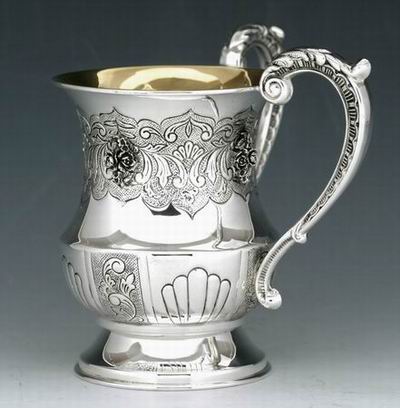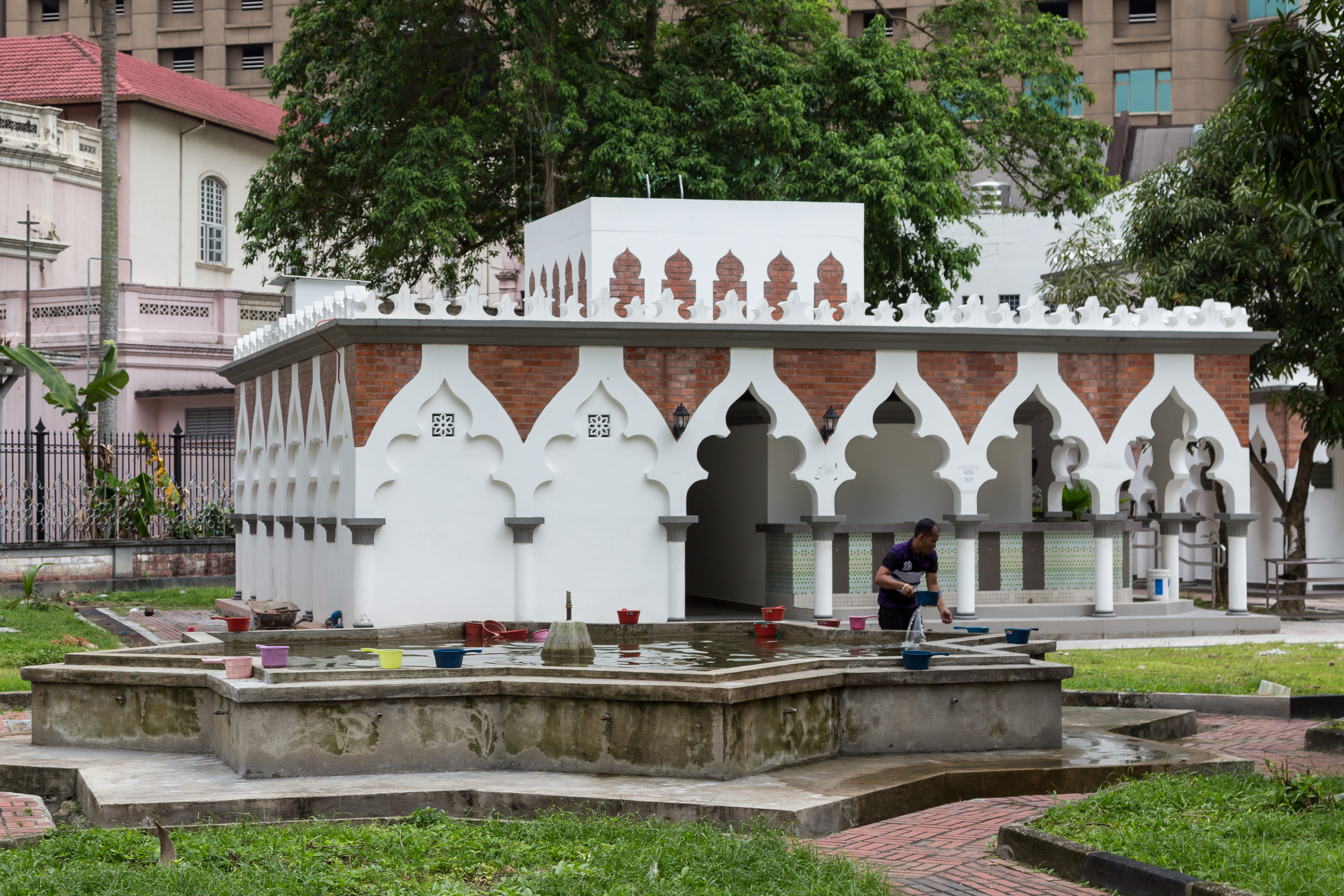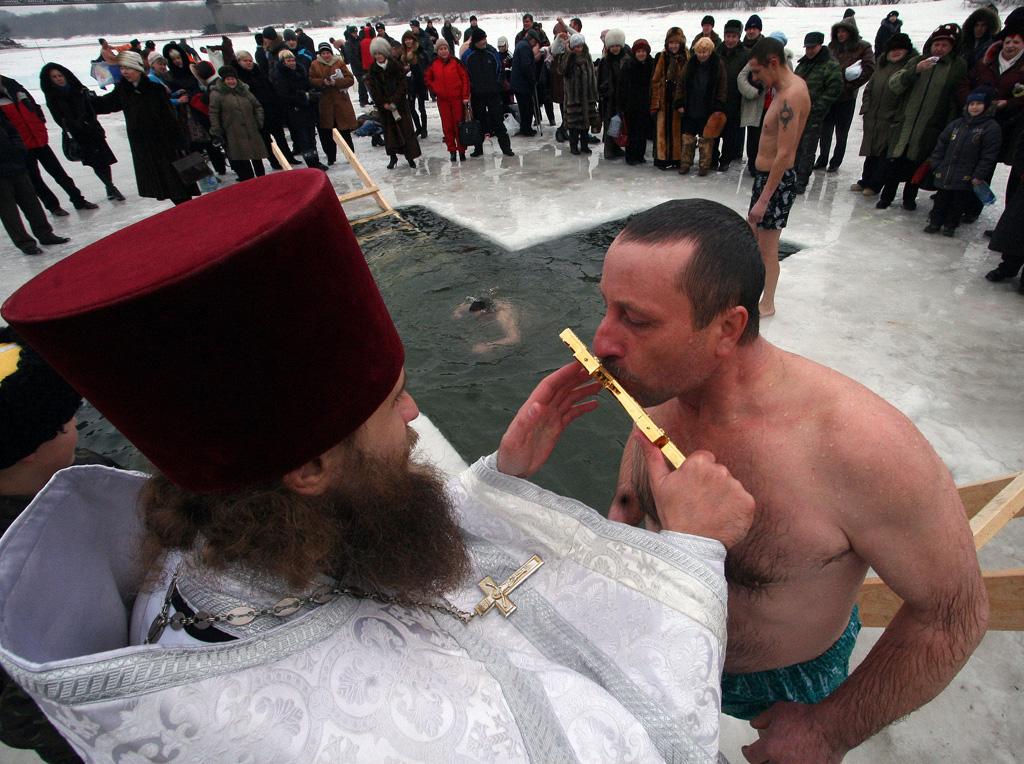|
áđmaÅĄa
In Mandaeism, tamasha or áđamaÅĄa () is an ablution ritual that does not require the assistance of a priest. Tamasha is performed by triple immersion in river (''yardna'') water. It is performed by women after menstruation or childbirth, men and women after sexual activity or nocturnal emission, touching a corpse, or any other type of defilement (''áđnupa''). It is also performed after subsiding from unclean thoughts or anger at another person. Rishama is another type of ablution performed by Mandaeans, in which the face and limbs are washed (similar to the wudu in Islam). However, unlike the tamasha, it does not involve full-body immersion in water. The rishama and tamasha ablution rituals, which do not require priestly assistance, are distinct from masbuta, which needs to be performed by a priest. Whereas the tamasha is a "self-immersion" in which devotees dip themselves into the water, during the masbuta, devotees need to be immersed into water by a priest, not by themselves ... [...More Info...] [...Related Items...] OR: [Wikipedia] [Google] [Baidu] |
Parwanaya 2015 Ahvaz 09
Parwanaya (; ) or Panja (Mandaic: , from Persian 'five') is a 5-day religious festival in the Mandaean calendar. The 5 epagomenals (extra days) inserted at the end of every Å umbulta (the 8th month) constitute the Parwanaya intercalary feast. The festival celebrates the five days that Hayyi Rabbi created the uthri and the universe. Origins The epagomenals in the Egyptian calendar were also considered to be sacred days in Ancient Egypt, as they were considered to be the birthdays of different gods. Today in the Coptic calendar, these five days are designated by the Coptic Orthodox Church as feast days for different saints.. Rituals The ''masbuta'' (baptism), ''áđŽabahata Masiqta'' (ascension of the soul ceremony for ancestors), and ''hawad mania'' rituals are held during the Parwanaya. [...More Info...] [...Related Items...] OR: [Wikipedia] [Google] [Baidu] |
Mandaeism
Mandaeism (Mandaic language, Classical Mandaic: ),https://qadaha.wordpress.com/wp-content/uploads/2021/03/nhura-dictionary-mandaic-english-mandaic.pdf sometimes also known as Nasoraeanism or Sabianism, is a Gnosticism, Gnostic, Monotheism, monotheistic and ethnic religion with Ancient Greek religion, Greek, Iranian religions, Iranian, and Judaism, Jewish influences. Its adherents, the Mandaeans, revere Adam#In Mandaeism, Adam, Abel#Mandaean interpretation, Abel, Seth#Mandaeism, Seth, Enos (biblical figure)#In Mandaeism, Enos, Noah#Mandaeism, Noah, Shem#In Mandaeism, Shem, Aram, son of Shem, Aram, and especially John the Baptist#Mandaeism, John the Baptist. Mandaeans consider Adam, Seth, Noah, Shem, and John the Baptist prophets, with Adam being the founder of the religion and John being the greatest and Last prophet, final prophet. The Mandaeans speak an Eastern Aramaic languages, Eastern Aramaic language known as Mandaic language, Mandaic. The name 'Mandaean' comes from th ... [...More Info...] [...Related Items...] OR: [Wikipedia] [Google] [Baidu] |
Ritual Purification
Ritual purification is a ritual prescribed by a religion through which a person is considered to be freed of ''uncleanliness'', especially prior to the worship of a deity, and ritual purity is a state of ritual cleanliness. Ritual purification may also apply to objects and places. Ritual uncleanliness is not identical with ordinary physical impurity, such as dirt stains; nevertheless, body fluids are generally considered ritually unclean. Most of these rituals existed long before the germ theory of disease, and figure prominently from the earliest known Ancient Near Eastern religion, religious systems of the Ancient Near East. Some writers connect the rituals to taboos. Some have seen benefits of these practices as a point of health and preventing infections especially in areas where humans come in close contact with each other. While these practices came before the idea of the germ theory was public in areas that use daily cleaning, the destruction of infectious agents seems t ... [...More Info...] [...Related Items...] OR: [Wikipedia] [Google] [Baidu] |
Yardna
In Mandaeism, a yardna () or yardena ([]; ) is a body of flowing fresh water (or in ; pronounced ''meyya heyyi'') that is suitable for ritual use as baptismal water. The masbuta and other Mandaean rituals such as the tamasha (ablution), tamasha can only be performed in a yardna. Water stagnation, Stagnant fresh water, brackish water, and seawater are not considered to be yardnas. Examples of yardnas Although etymologically related to the Canaanite languages, Canaanite word ''yarden'' (Hebrew language, Hebrew: ), or the Jordan River, a yardna in Mandaeism can refer to any flowing river. Traditionally, these were typically the Euphrates (Mandaic: ''PraÅĄ''), Tigris (Mandaic: ''Diglat''), and Karun (Mandaic: ''ĘŋUlat'') rivers. The Euphrates is called (; pronounced ) in the ''Ginza Rabba''. In Mandaean scriptures, the Euphrates is considered to be the earthly manifestation of the heavenly yardna or flowing river (similar to the Yazidi concept of Lalish being the earthly manifestat ... [...More Info...] [...Related Items...] OR: [Wikipedia] [Google] [Baidu] |
Menstruation
Menstruation (also known as a period, among other colloquial terms) is the regular discharge of blood and Mucous membrane, mucosal tissue from the endometrium, inner lining of the uterus through the vagina. The menstrual cycle is characterized by the rise and fall of hormones. Menstruation is triggered by falling progesterone levels, and is a sign that pregnancy has not occurred. Women use feminine hygiene products to maintain hygiene during menses. The first period, a point in time known as menarche, usually begins during puberty, between the ages of 11 and 13. However, menstruation starting as young as 8 years would still be considered normal. The average age of the first period is generally later in the developing world, and earlier in the developed world. The typical length of time between the first day of one period and the first day of the next is 21 to 45 days in young women; in adults, the range is between 21 and 35 days with the average often cited as 28 days. In the b ... [...More Info...] [...Related Items...] OR: [Wikipedia] [Google] [Baidu] |
Rishama (ablution)
In Mandaeism, rishama (riÅĄama) () is a daily ritual purification, ablution ritual. Unlike the masbuta, it does not require the assistance of a priest. ''Rishama'' (signing) is performed before prayers and involves washing the face and limbs while reciting specific prayers such as the rushma. It is performed daily, before sunrise, with hair covered and after evacuation of bowels, or before religious ceremonies. Tamasha (ablution), Tamasha (áđamaÅĄa) is another type of ablution performed by Mandaeans in which the entire body is fully immersed three times in water. Although the term for the Mandaean daily minor ablution is also spelled the same in written Classical Mandaic (''riÅĄama''), the word for 'minor ablution' is pronounced in Modern Mandaic as , while 'rishama, head priest' is pronounced . Procedures Rishama ritual steps or procedures may vary according to the location or priest's instructions. Below is a list of rishama procedures by Shadan Choheili of the Ganzibra Dak ... [...More Info...] [...Related Items...] OR: [Wikipedia] [Google] [Baidu] |
Wudu
''WuduĘū'' ( ) is the Islamic procedure for cleansing parts of the body, a type of ritual purification, or ablution. The steps of wudu are washing the hands, rinsing the mouth and nose, washing the face, then the forearms, then wiping the head, the ears, then washing or wiping the feet, while doing them in order without any big breaks between them. Wudu is an important part of ritual purity in Islam that is governed by fiqh, which specifies hygienical jurisprudence and defines the rituals that constitute it. Ritual purity is called ''tahara''. Wudu is typically performed before Salah or reading the Quran. Activities that invalidate wudu include urination, defecation, flatulence, deep sleep, light bleeding (depending on madhhab), menstruation, postpartum status, and sexual intercourse. Wudu is often translated as "''partial ablution"'', as opposed to ghusl, which translates to "''full ablution",'' where the whole body is washed. An alternative to wudu is tayammum or "''dry ... [...More Info...] [...Related Items...] OR: [Wikipedia] [Google] [Baidu] |
Masbuta
MaáđĢbuta (; pronounced ''maáđĢwottÄ'' in Neo-Mandaic) is the ritual of immersion in water in the Mandaean religion. Overview Mandaeans revere John the Baptist and practice frequent baptism (''masbuta'') as ritual purification, not of initiation. They are possibly one of the earliest peoples to practice ritual baptism. Mandaeans undergo baptism on Sundays (''Habshaba'', ), wearing a white sacral robe ('' rasta''). Baptism for Mandaeans consists of a triple full immersion in water, a triple signing of the forehead with water (in which the priest puts his fingers on the baptized person's forehead and moves it from right to left), and a triple drinking of water. The priest (''rabbi'') then removes a ring made of myrtle (''klila'') worn by the baptized and places it on their forehead. This is then followed by a handclasp ('' kuÅĄáđa'', "hand of truth") with the priest, using right hands only. The final blessing involves the priest laying his right hand on the baptized person's he ... [...More Info...] [...Related Items...] OR: [Wikipedia] [Google] [Baidu] |
Tevilah
In Judaism, ritual washing, or ablution, takes two main forms. ''Tevilah'' () is a full body immersion in a mikveh, and ''netilat yadayim'' is the washing of the hands with a cup (see Handwashing in Judaism). References to ritual washing are found in the Hebrew Bible, and are elaborated in the Mishnah and Talmud. They have been codified in various codes of Jewish law and tradition, such as Maimonides' ''Mishneh Torah'' (12th century) and Joseph Karo's ''Shulchan Aruch'' (16th century). These practices are most commonly observed within Orthodox Judaism. In Conservative Judaism, the practices are normative, with certain leniencies and exceptions. Ritual washing is not generally performed in Reform Judaism. Hebrew Bible The Hebrew Bible requires immersion of the body in water as a means of purification in several circumstances, for example: : And when the ''zav'' is cleansed of his issue, then he shall number to himself seven days for his cleansing, and wash his clothes; and he ... [...More Info...] [...Related Items...] OR: [Wikipedia] [Google] [Baidu] |
Ghusl
( ', ) is an Arabic term that means the full-body ritual purification which is mandatory before the performance of various Islamic activities and prayers. For any Muslim, it is performed after sexual intercourse (i.e. it is fardh), before Friday prayer and prayers for Islamic holidays, before entering the ihram in preparation for Hajj, after having lost consciousness, and after formally converting to Islam. Sunni Muslims also perform the ablution before Salat al-Tawba "Prayer of Repentance". ''Ghusl'' is often translated as "full ablution", as opposed to the "partial ablution" or wudu that Muslims perform after lesser impurities such as urination, defecation, flatulence, deep sleep, and light bleeding (depending on the madhhab). Ghusl is a ritual bath. Types by purpose Ghusl becomes obligatory for seven causes, and the ''ghusl'' for each of these different causes has different names: *''Ghusl Janabat'' is ''ghusl'' performed after sexual intercourse/ejaculation. *'' ... [...More Info...] [...Related Items...] OR: [Wikipedia] [Google] [Baidu] |
Rushma
The rushuma (; sometimes also spelled rushma or ruÅĄma) is one of the most commonly recited prayers in Mandaeism. It is a "signing" prayer recited during daily ablutions (rishama). The same word can also be used to refer to the ritual signing gesture associated with the prayer. The rushuma is numbered as Prayer 104 in E. S. Drower's version of the Qulasta, which was based on manuscript 53 of the Drower Collection (abbreviated DC 53). In Drower's ordering, the ''Asut Malkia'' prayer (''CP'' 105) follows the rushuma prayer, while the '' Ęŋniana'' ("response") prayers come before the rushuma. Signing ''Rushuma'' or ''rushma'' literally means "sign" or "signing" (ritual gesture). Many lines in the prayer are repeated three times as the reciter signs the ''rushuma'' front of the face with his or her fingers. Mandaic text and translation Below is the transliterated Mandaic text of the Rushuma prayer, based on Majid Fandi Al-Mubaraki's Qulasta (volume 2) as edited by Matthew Morgenste ... [...More Info...] [...Related Items...] OR: [Wikipedia] [Google] [Baidu] |
Ablution In Christianity
In Christianity, ablution is a prescribed washing of part or all of the body or possessions, such as clothing or ceremonial objects, with the intent of purification or dedication. In Christianity, both baptism and footwashing are forms of ablution. Prior to praying the canonical hours at seven fixed prayer times, Oriental Orthodox Christians wash their hands and face (cf. '' Agpeya'', ''Shehimo''). In liturgical churches, ablution can refer to purifying fingers or vessels related to the Eucharist. In the New Testament, washing also occurs in reference to rites of Judaism part of the action of a healing by Jesus, the preparation of a body for burial, the washing of nets by fishermen, a person's personal washing of the face to appear in public, the cleansing of an injured person's wounds, Pontius Pilate's washing of his hands as a symbolic claim of innocence and foot washing, which is a rite within the Christian Churches. According to the Gospel of Matthew, Pontius Pilate declare ... [...More Info...] [...Related Items...] OR: [Wikipedia] [Google] [Baidu] |








